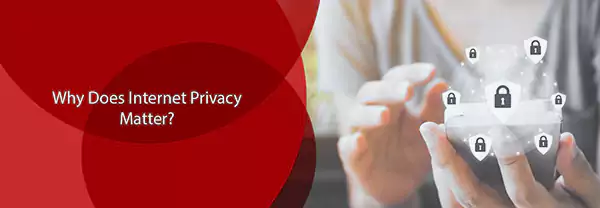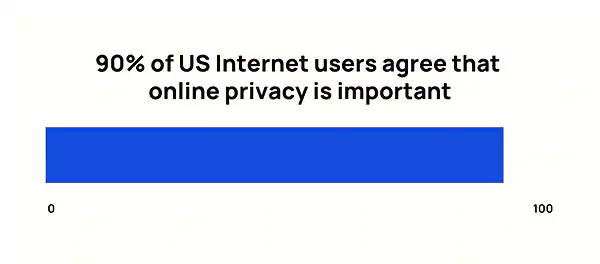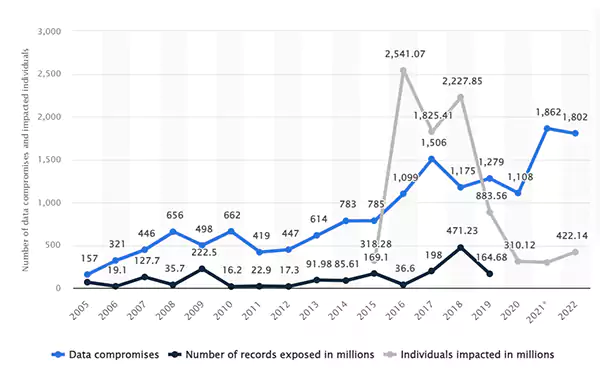
The internet is transforming the world in numerous ways. Its future is bright in all areas, including study, communication, politics, and administration.
The widespread development of 5G raises the question of how users’ online privacy may be affected by ultra-fast connections. The reality is that it is still an issue, and may even worsen as a result of improved network speeds.
Also Read :- How the Internet of Things is Shaping the World Around Us
It is also paramount to choose a reliable and safe ISP. If you are looking for one, contact Xfinity today to find out more about Xfinity Internet plans. The constraints put on websites, particularly when it comes to handling private information, highlight its significance by limiting how data is collected, utilized, and shared.
Yes, you can restrict access to your social media account and post just to a select set of followers. But how do you know for sure what social media does with your personal information? And what about other digital footprints you leave behind, such as your online shopping and communication?

Here’s all you need to know why online privacy is so pivotal; and how to protect it.
Fortunately, everyone must abide by its rules. Instead, they cross over a variety of things and organizations. A great deal of private information is divulged in the process, often to unknown parties on the web.
Your digital confidentiality may soon vanish if you don’t take measures to protect it, as cybercrime is on the rise due to the massive amount of data internet users exchange. Identity theft is one way that it can be compromised.
By stealing your credit card details, cybercriminals might also acquire an unfair financial edge. Below graph shows that in 2022, the number of data compromised was 1802 which impacted almost 422.14 million people. We can also deduce the fact that the number of data compromised is on the rise since 2005.

Here is why it’s so pertinent to protect your privacy online.
The right to privacy serves as a check on the authority of both the state and private businesses. One’s control over us increases in proportion to their level of knowledge about us.
Information about us as individuals is used in the making of serious choices. Information on us that can be used to harm our reputations, change our judgments, and alter our actions also exists. It has the potential to be utilized as a means of enforcing authority over us. Moreover, sensitive information can be utilized maliciously in the wrong hands.
Privacy is about giving people the space they deserve. It is rude to disregard someone’s request for secrecy if they have a good cause for wanting to keep it to themselves.
Of course, there are times when protecting one’s confidentiality has to take a back seat to protect other principles. People’s needs for personal space are often disregarded when it is thought that the consequences won’t amount to much.
This shows a lack of regard for that individual, even if it doesn’t seriously hurt them. The ability to trust the other party is influential in any kind of connection, whether it be personal, professional, governmental, or business.
Building and maintaining this kind of trust is especially fundamental in more serious interactions, like those we have with our doctors and lawyers. We put our faith in the individuals we meet and the businesses we support. When our trust in one person is betrayed, it might make us wary of extending it to others.
Internet privacy serves as a check on our excesses, even though the net provides users with a free place to learn about the world, take advantage of possibilities, and communicate with thousands of other people. The protection of free speech and expression is of the utmost significance in this current digital environment.
Misinformation, like anything else, spreads quickly online. The worst incidents of misuse of others’ basic rights have resulted from such liberties. With the understanding that its safeguarding protects your right to move at your own pace, feedback and information exchange take center stage.
It is significant in providing the kind of service that internet consumers should expect. So, to keep everything under wraps, here are some privacy-enhancing practices that every internet user should adopt.
Wi-Fi hotspots are frequently the target of cybercriminals. Just when you think things are safe and sound, something goes wrong. You should try to picture a scenario in which a hacker manages to crack your Wi-Fi password and takes complete command of your network.
The catch is that secured access encrypts all data and information sent over Wi-Fi networks, making it incredibly difficult for hackers to hack or decrypt.
People’s information that is stored on the web is seriously threatened by the devices they use to access the net, such as smartphones. Many types of cybercrime can compromise your system if you don’t have anti-spyware or anti-malware software installed. One risks having sensitive information stolen by social media impersonators or hackers if they fall for phishing attacks.
Do You Know: Online Privacy is not governed by any single law, instead there is an amalgam of Federal and State law in running. For instance, there is the Electronic Communication Privacy Act (ECPA), established in 1986 that protects from unauthorized access, use, and disclosure of certain wire, oral, and electronic communications. The other one is the Fair and Accurate Credit Transactions Act (FACTA), which demands that creditors and financial institutions maintain formal identity theft prevention programs.
There are no borders in cyberspace. It is, nonetheless, wise to assist web users in maintaining secure online habits. This highlights the importance of digital confidentiality in educating people about the collection, processing, usage, and sharing of their data and information on the web.
Most of all, it teaches individuals how to protect themselves when using the internet.
